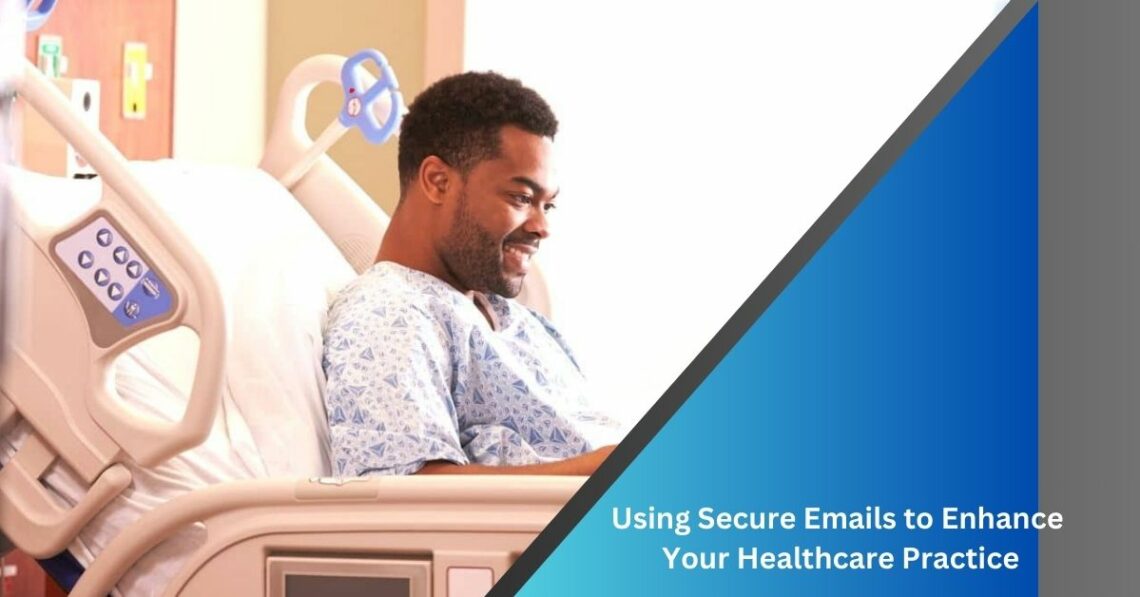
Using Secure Emails to Enhance Your Healthcare Practice
Safe communication methods help to keep sensitive patient information confidential. Secure emails offer healthcare practitioners a reliable means of exchanging information.
Using protected emails to enhance healthcare practices can benefit practitioners and their patients. Explore what practitioners can do to use this technology well.
Table of Contents
ToggleBenefits of Using Secure Emails in Healthcare
The healthcare industry uses digitized processes that help to keep patient information safe. Here are five reasons why healthcare professionals should use secure emails to keep patient information private and keep work streamlined.
- Data Encryption: Secure emails use encryption to protect the information from unauthorized access. This keeps patient information secure during transmission.
- HIPAA Compliance: Healthcare providers must comply with regulations such as HIPAA. Safe emails meet HIPAA requirements because they help prevent protected health information (PHI) from being accessed by anyone other than the patient and practitioner.
- Reduced Risk of Data Breaches: These email platforms use advanced security measures to prevent data breaches.
- Improved Patient Trust: Using protected emails is about building trust. This type of security shows a commitment to patient privacy and helps patients trust practitioners.
- Efficient Communication: Secure mails help to make communication easier. They offer electronic signatures, secure file attachments, and tracking to streamline communication.
These benefits explain how these emails can help people in healthcare work with each other and raise the standards of patient care.
Implementing Secure Email Practices in Healthcare
Pick an email service that’s HIPAA-compliant. Look for those that offer encryption, secure storage, and other features that help to keep your patient data safe. After this, get your team on the same page.
Train your staff on the details of secure email practices and enlighten them on the risks of unsecured communication. They should also learn how to avoid phishing attempts and properly handle ePHI.
Use Two-Factor Authentication (2FA) to keep your emails secure. Check your cybersecurity regularly to handle any vulnerabilities that you face in your email communications.
Training and Education for Healthcare Professionals
Training healthcare professionals will teach them to understand secure email protocols, data encryption, and compliance with healthcare regulations.
These initiatives look at practical scenarios that healthcare professionals face and address concerns to create confidence and integration into their workflow. They should keep learning and adapting to emerging technologies.
Future Trends in Secure Healthcare Communication
Artificial intelligence (AI) may enhance the ability to analyze potential security threats in an area. Blockchain technology is also on the rise, improving levels of data integrity.
Rising interoperability standards help to promote easy communication among different healthcare systems.
The healthcare industry continues to embrace innovation. These future trends help to protect against cyber threats and allow for a more efficient healthcare ecosystem. This benefits healthcare professionals and their patients.
Take Advantage of Secure Emails for Your Practice
Secure email communication helps healthcare workers to exchange sensitive patient information in a safe way.
By using HIPAA-compliant email services, implementing security measures, and prioritizing staff training, healthcare practitioners can enhance the security of their communication channels.
Use secure emails to help you keep patient records confidential and comply with regulatory standards.
Questions To Ask Your Botox Provider
You May Also Like

Georgis Nikolos – A Maritime Journey Of Legacy And Innovation!
January 17, 2024
Executive Large Office Moving Services Sherman Oaks – Guide!
December 11, 2023
